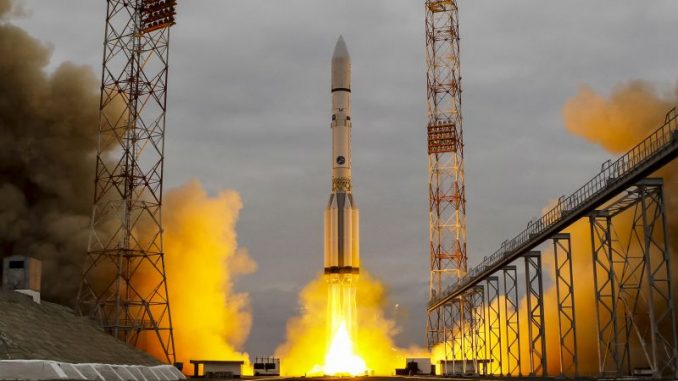
The European Space Agency in collaboration with Roscosmos have launched a joint mission to explore the atmosphere of Mars and hunt for signs of life.
The ExoMars Trace Gas Orbiter (TGO) took off from Baikonur in Kazakhstan on Monday and is due to reach the red planet in October.

BYPASS THE CENSORS
Sign up to get unfiltered news delivered straight to your inbox.
You can unsubscribe any time. By subscribing you agree to our Terms of Use
Latest Video
The Scotsman reports:
The probe will investigate whether methane in the Martian atmosphere is coming from a geological source or is being produced by microbes.
If all goes well, the two space powers expect to follow up this venture with a rover, to be assembled in the UK, which will drill into the surface.
That could launch in 2018, or, as is more probable, in 2020.
The prospect of finding life on Mars – even microscopic organisms – has excited scientists for some time, but so far none has been discovered.
“The fact that they’ve not found life doesn’t mean certainly that there’s no life there,” said Paolo Ferri, the European Space Agency (ESA) head of mission operations.
If life is discovered, it actually raises questions about whether future manned missions to the planet should be attempted, said Mark McCaughrean, senior science adviser at ESA.
“Weirdly, if we find life on Mars is actually really begs the question if we should go at all with human beings because of that idea of planetary protection,” he said at ESA mission control in Darmstadt. “We would take with us bugs, and if now those bugs meet Martian bugs, that could be a disaster.”
Landing a spacecraft on Mars is notoriously difficult and several past attempts have failed, including ESA’s Beagle 2 probe that was part of the Mars Express mission in 2003. Beagle 2 disappeared during landing, a setback the agency is keen to avoid this time, hence the decision to separate the orbiter mission from the actual landing attempt.
“It was clear putting both things in one mission drove up the complexity,” said Mr Ferri.
ExoMars, which cost the esa alone £1 billion, is its first interplanetary mission with Roscosmos. The orbiter also has a Nasa-radio to relay signals from other Mars probes.


